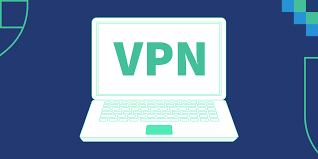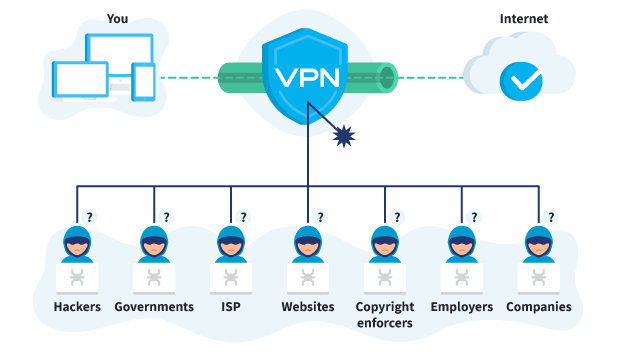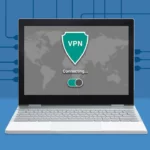
A VPN, or Virtual Private Network, is a networking technology that allows users to create a secure connection over a public network. This will enable businesses and individuals to securely access information and resources in different parts of the world.
One of the main benefits of using a VPN is that it can help to keep your data safe and secure. When you connect to a VPN, all the data sent between your device and the VPN server is encrypted. This means that if any third party tried to intercept the data, they would not be able to read it.
Why do we need a VPN
No one likes to be watched or tracked — even if they have nothing to hide. That’s why you must step up your privacy game. Your traffic is encrypted when browsing through a VPN, so no one can see what you do online. Here are a few more reasons why you need a VPN:
- Keep your browsing habits private.
- Bypass censorship and geo-restrictions.
- Increase your online security.
- Protect your online identity.
- Prevent ISP throttling.
What does a VPN do?
Additionally, a VPN can bypass geo-restrictions and access content that might be unavailable in your area. For example, if you’re traveling abroad and want to watch your favorite streaming service, connect to a server in your home country, and you’ll be able to access the content as usual.
VPNs are essential for anyone who values their privacy and security online. Whether accessing the Internet on your home computer or using public Wi-Fi, a VPN is the best way to ensure that your data remains safe and secure.
How does a VPN work?
A VPN (Virtual Private Network) is a private network that extends across a public network, such as the Internet. A VPN allows users to send and receive data over the Internet as if they were directly connected to the private network.
A VPN can be used to securely connect to a server, encrypting all data that passes through the VPN connection. This makes it difficult for anyone on the same network as the user to snoop on their traffic or intercept their data.

Businesses often use VPNs to allow employees to connect securely to their corporate network from remote locations. VPNs are also popular with individuals who want to protect their privacy and security online.
There are many different types of VPN protocols, each with advantages and disadvantages. The most common VPN protocols are L2TP/IPSec, SSTP, and OpenVPN.
L2TP/IPSec (Layer 2 Tunneling Protocol/Internet Protocol Security) is a more secure option than PPTP because it uses encrypted tunneling. However, L2TP/IPSec can be more complicated than PPTP.
SSTP (Secure Socket Tunneling Protocol) is a newer VPN protocol that uses SSL to provide security. SSTP is only supported on Windows Vista and Server 2008.
OpenVPN is an open-source VPN protocol that uses SSL/TLS for security. OpenVPN is available on various platforms, including Windows, Linux, and Mac OS X.
Choosing the correct VPN protocol depends on your needs. If security is your main concern, you should select a protocol like L2TP/IPSec or OpenVPN. If ease of use is more critical, then PPTP might be the better option.
Conclusion
There are several large servers providers that will let you access to servers all around the world for just a few dollars per month. These companies make certain that their security and server speed is up to date on a regular basis. We’ve hand-picked the finest VPN services for you after comprehensive testing. You can even develop your own VPN if you don’t want to spend any money.





